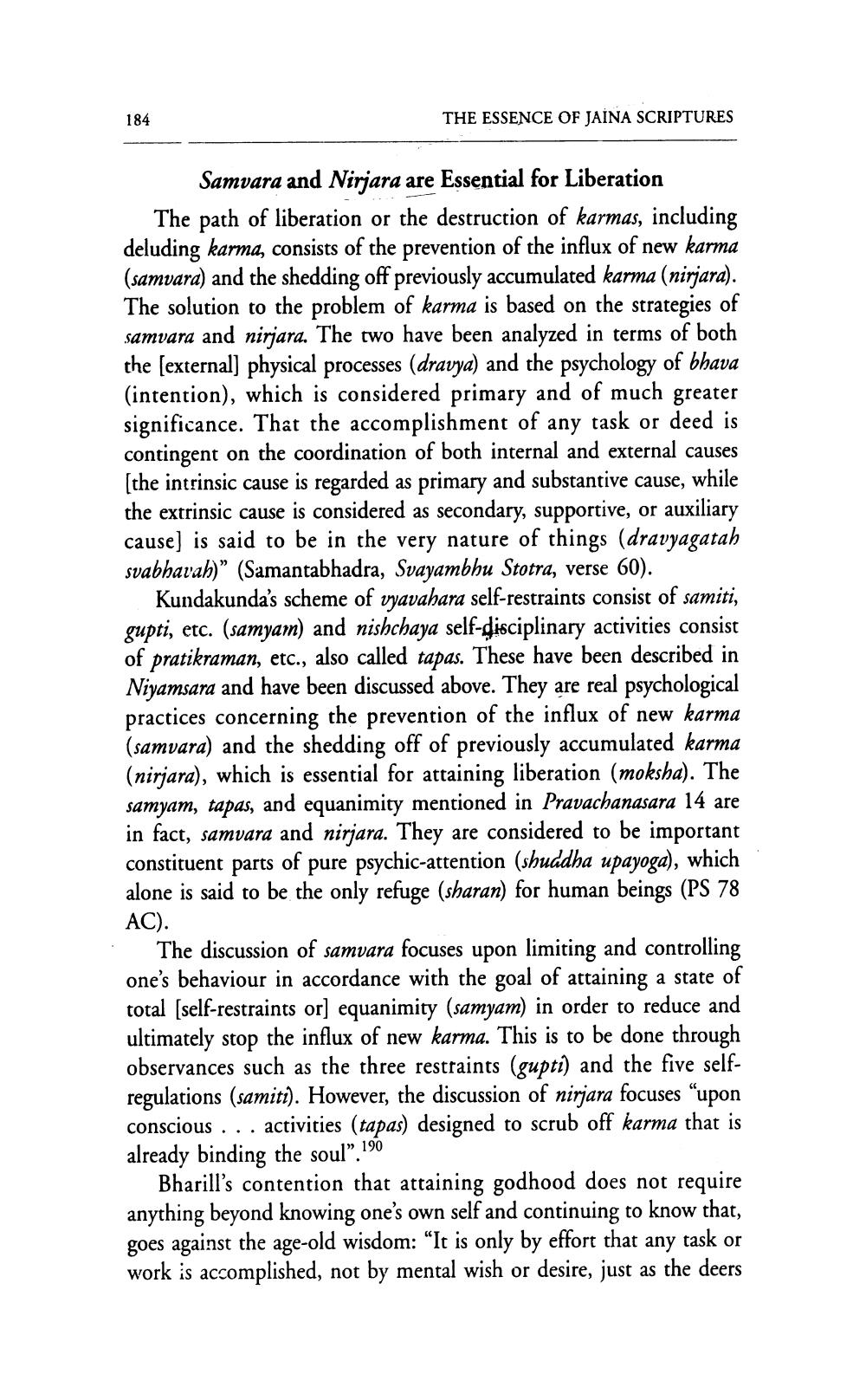________________
184
THE ESSENCE OF JAINA SCRIPTURES
Samvara and Nirjara are Essential for Liberation The path of liberation or the destruction of karmas, including deluding karma, consists of the prevention of the influx of new karma (samvara) and the shedding off previously accumulated karma (nirjara). The solution to the problem of karma is based on the strategies of samvara and nirjara. The two have been analyzed in terms of both the [external) physical processes (dravya) and the psychology of bhava (intention), which is considered primary and of much greater significance. That the accomplishment of any task or deed is contingent on the coordination of both internal and external causes [the intrinsic cause is regarded as primary and substantive cause, while the extrinsic cause is considered as secondary, supportive, or auxiliary cause) is said to be in the very nature of things (dravyagatah svabhavah)” (Samantabhadra, Svayambhu Stotra, verse 60).
Kundakunda's scheme of vyavahara self-restraints consist of samiti, gupti, etc. (samyam) and nishchaya self-disciplinary activities consist of pratikraman, etc., also called tapas. These have been described in Niyamsara and have been discussed above. They are real psychological practices concerning the prevention of the influx of new karma (samvara) and the shedding off of previously accumulated karma (nirjara), which is essential for attaining liberation (moksha). The samyam, tapas, and equanimity mentioned in Pravachanasara 14 are in fact, samvara and nirjara. They are considered to be important constituent parts of pure psychic-attention (shuddha upayoga), which alone is said to be the only refuge (sharan) for human beings (PS 78 AC).
The discussion of samvara focuses upon limiting and controlling one's behaviour in accordance with the goal of attaining a state of total (self-restraints or] equanimity (samyam) in order to reduce and ultimately stop the influx of new karma. This is to be done through observances such as the three restraints (gupti) and the five selfregulations (samiti). However, the discussion of nirjara focuses “upon conscious ... activities (tapas) designed to scrub off karma that is already binding the soul”. 190
Bharill's contention that attaining godhood does not require anything beyond knowing one's own self and continuing to know that, goes against the age-old wisdom: “It is only by effort that any task or work is accomplished, not by mental wish or desire, just as the deers




